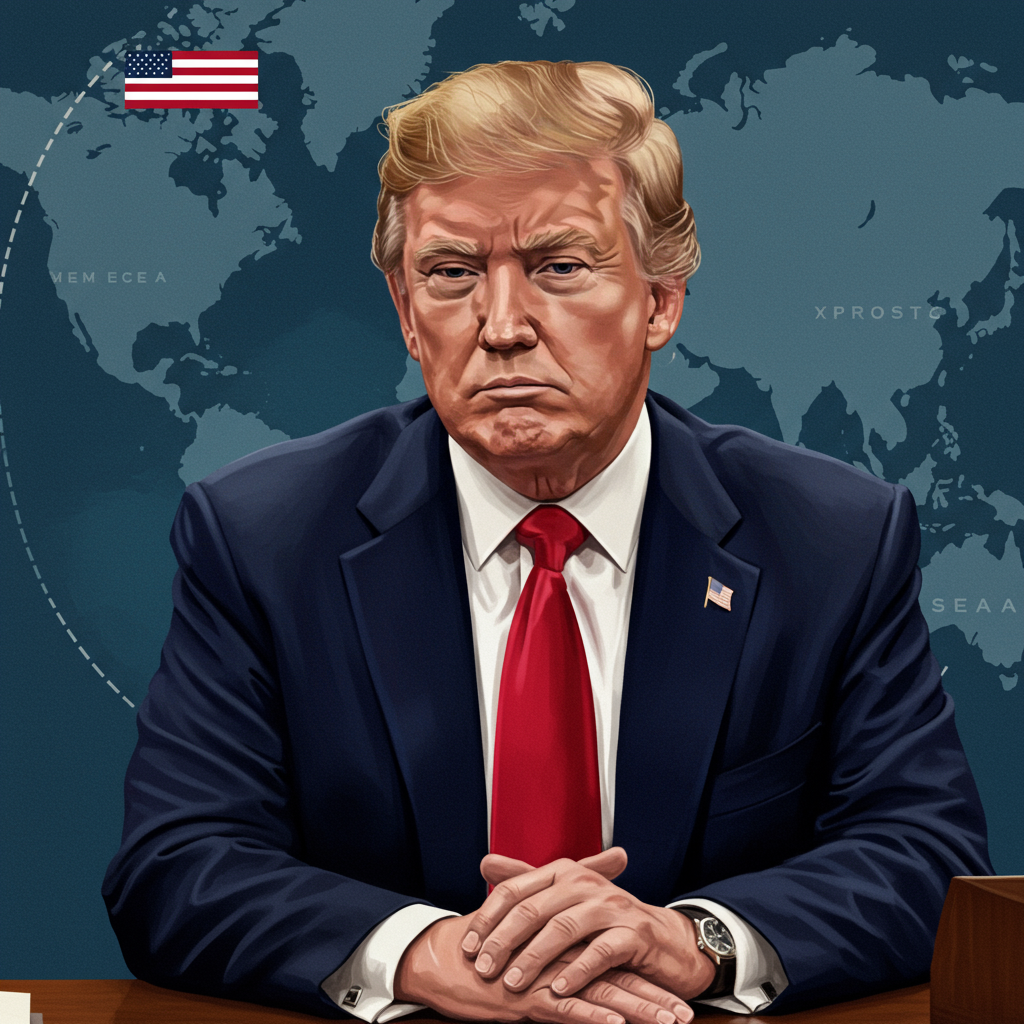The Trump administration is reportedly considering a significant expansion of its travel restrictions, potentially adding citizens from 36 additional countries to the list of nations facing entry limitations to the United States. This potential move, described as a sweeping escalation of U.S. immigration controls, follows a recent reinstatement and expansion of travel bans affecting 19 countries.
According to a State Department memo reviewed by The Washington Post and other outlets, the proposed restrictions could involve tougher visa requirements or outright bans on specific categories of travel for nationals of the targeted countries.
Proposed Expansion Details
The internal memo, reportedly signed by Secretary of State Marco Rubio and dated June 14, 2025, indicates that the governments of the 36 nations under consideration have been given 60 days to comply with new security and information-sharing requirements set by the State Department. They were also tasked with submitting an initial plan of action by an earlier deadline detailing steps to meet these requirements.
The reasons cited in the memo for potentially adding these countries include claims that some governments lack a “competent or cooperative central government authority” necessary to provide reliable identity documents for their citizens. Concerns were also raised about deficiencies in national security vetting systems and a significant number of citizens from these countries who have reportedly violated the terms of their U.S. visas. Data on high visa overstay rates in some countries, though sometimes representing small absolute numbers, was noted as a factor.
Interestingly, the memo included a condition: a country’s willingness to accept third-country nationals who are being removed from the United States would be viewed favorably and could potentially help alleviate other U.S. concerns.
Who Could Be Affected?
The extensive list of countries under consideration is geographically diverse:
Africa (25 nations): Angola, Benin, Burkina Faso, Cabo Verde, Cameroon, Côte d’Ivoire, Democratic Republic of the Congo, Djibouti, Ethiopia, Egypt, Gabon, Gambia, Ghana, Liberia, Malawi, Mauritania, Niger, Nigeria, Sao Tome and Principe, Senegal, South Sudan, Tanzania, Uganda, Zambia, and Zimbabwe. This includes some countries considered major U.S. partners, such as Egypt and Djibouti.
Caribbean (4 nations): Antigua and Barbuda, Dominica, Saint Kitts and Nevis, and Saint Lucia.
Asia (4 nations): Bhutan, Cambodia, Kyrgyzstan, and Syria.
Oceania (3 nations): Tonga, Tuvalu, and Vanuatu.
If implemented, this would significantly increase the number of African nations affected by U.S. travel restrictions compared to the previous ban.
Context and Reactions
This potential expansion is framed within President Trump’s broader anti-immigration agenda, which has included calls for significant deportations and efforts to revoke visas and protections for various immigrant groups. The State Department’s task of identifying countries with “deficient vetting and screening information” stems from an executive order signed by Trump in January.
Critics are quick to argue that the expanded ban is discriminatory, particularly given its extensive focus on African nations, some of which, like Nigeria and Ghana, are seen as key U.S. partners with established ties. They warn of wide-ranging negative effects on diplomatic relations, trade, educational exchanges, and travel for diaspora communities.
Initial reactions from the international community include concern from the African Union Commission regarding potential impacts on diplomatic ties. Some countries have indicated a willingness to engage in dialogue, while others have reacted negatively; Chad, for instance, reportedly announced the suspension of visas for U.S. citizens in retaliation.
While the memo sets deadlines for countries to respond, the ultimate implementation of these restrictions remains uncertain. This potential move comes just one week after the Trump administration’s earlier ban took effect, which applied full entry bans to nationals from 12 countries and heightened restrictions on seven others. Compared to the abrupt implementation and chaos of the 2017 travel ban, this potential new phase appears to involve more formal processes and advanced notice, though legal challenges to the basis for targeting specific countries are still anticipated.



